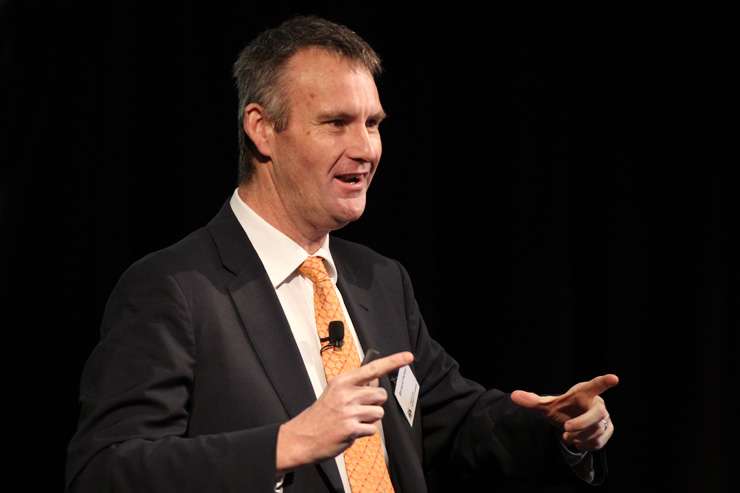A drop in houses prices is not making properties any more attractive to mum and dad investors, who, in the wake of rising interest rates and the inability to deduct mortgage interest as an expense, are still faced with having to top up repayments by hundreds of dollars every week.
A mum and dad investor who typically borrows 100% to buy an investment property and uses the equity in their home as a deposit would have to top the mortgage up by $380 week, according to analysis from OneRoof’s data partner Valocity.
The shortfall is based on paying 6.7% interest only on the nationwide median price of $770,000 paid by investors in the first quarter of the year. The median weekly rent is $620 a week, but the mortgage repayments are $1000.
In Auckland the shortfall increases to $566, but drops significantly in places like the West Coast and Southland, where the median purchase price of investment properties is coincidentally also the cheapest, and landlords only have to top up the mortgage by $92 and $32 respectively.
Start your property search
The calculations do not include any other expenses such as rates, insurance and maintenance.
Valocity senior research analyst Wayne Shum said anyone having to borrow 100% of the property price will struggle to make the rent cover the mortgage and it instead comes down to just how big the shortfall is.
Mortgage repayments on $975,150 – the median price of an investment property in Auckland in Q1 – would be $1266 a week and, Shum added, no one would be paying that much rent for that value of home.
To make an investment property more palatable for a mum and dad investor, interest deductibility would have to be reinstated, interest rates would need to drop, and rents would have to rise, he said.
“But you can only extract so much from tenants, you can only push down your vendor so much when you buy a house.”
The only way of getting around this, he said, was for investors to buy new-builds because they could still deduct the interest on them.
“That’s why new-builds are so popular at the moment. Not for people to buy to live, but because they can deduct interest and lessen the cash burden.”
But New Zealand Property Investors’ Federation president Sue Harrison said even buying new-builds as investment properties didn’t stack up since interest rates have doubled.
On top of that investors are also facing rising council rates, higher insurance costs and tougher tenancy rules that make it harder for them to evict bad tenants, she said.
Read more:
- Tony Alexander: The housing market rebound is closer than you think
- The economic downsides of helping your kids into their first home
- What the Reserve Bank’s interest rate surprise means for house prices
Harrison said it was even harder for landlords who own existing properties because of the lack of tax deductibility.
Loan Market Tauranga mortgage adviser Dave Williams said the days of owning a positively-geared investment property regardless of the interest rate were pretty much long gone and people have to be prepared to top up the mortgage at least a little bit.
“But off the back of being able to buy the property in today’s market in today’s prices you kind of have to think about, it’s always a long-term strategy, in five years’ time where are we positioned.”
Williams is already seeing mum and dad investors show interest in buying an investment property again as they seek out pre-approvals for loans.
“Not your seasoned investor with five or six properties, but certainly people that have a bit of equity and looking at the market and kind of I guess assuming there may be some interest around interest deductibility if the government changes. They are preparing themselves.”
As soon as the interest becomes deductible as an expense it creates an opportunity for that interest rate not to be such a heavily influencing factor, he added,
“It’s very much the first-home buyers opportunity now and their time to shine and get into the market, but that will quickly be replaced by investors, particularly if National get in and remove the interest deductibility. Overnight you will see the market change.”

Bernard Hickey: “Interest rates falling also magnifies a bigger ability to pay more.” Photo / Duncan Brown
Economics speaker Bernard Hickey believes a change to a National-led Government could also see house prices increase anywhere between 10% and 20%.
Hickey based this on the fact that interest deducibility changes are worth about 10% to rental properties, while a combination of higher migration, less housing supply, and lower interest rates equate for up to another 10%.
“What would get more investors in really depends on how much equity each person has, what the interest rates and what the interest deductibility rules are, and also the bright-line tests as well.”
Under National, Hickey said more investors could come into the market or the same investors could just buy more properties. “Because those investors currently owning multiple properties have got very, very large amounts of equity,” he said.
“It’s a lot of dry timber that could be deployed if banks were willing to lend to them, and interest rates falling also magnifies a bigger ability to pay more for these existing properties.”
Hickey said property owners are now just sitting on their hands with some even pulling their properties off the market over winter until voting day.
“And the moment there's a change of government, if there is a change of government, then a whole bunch of people put their houses back on the market and you’ll see a surge in activity because people who have their house on the market can suddenly see house prices rise and can see the momentum shifting.”
- Click here to find properties for sale in New Zealand

















































































